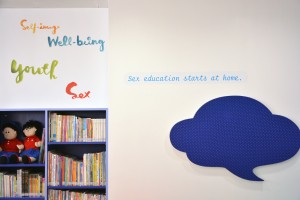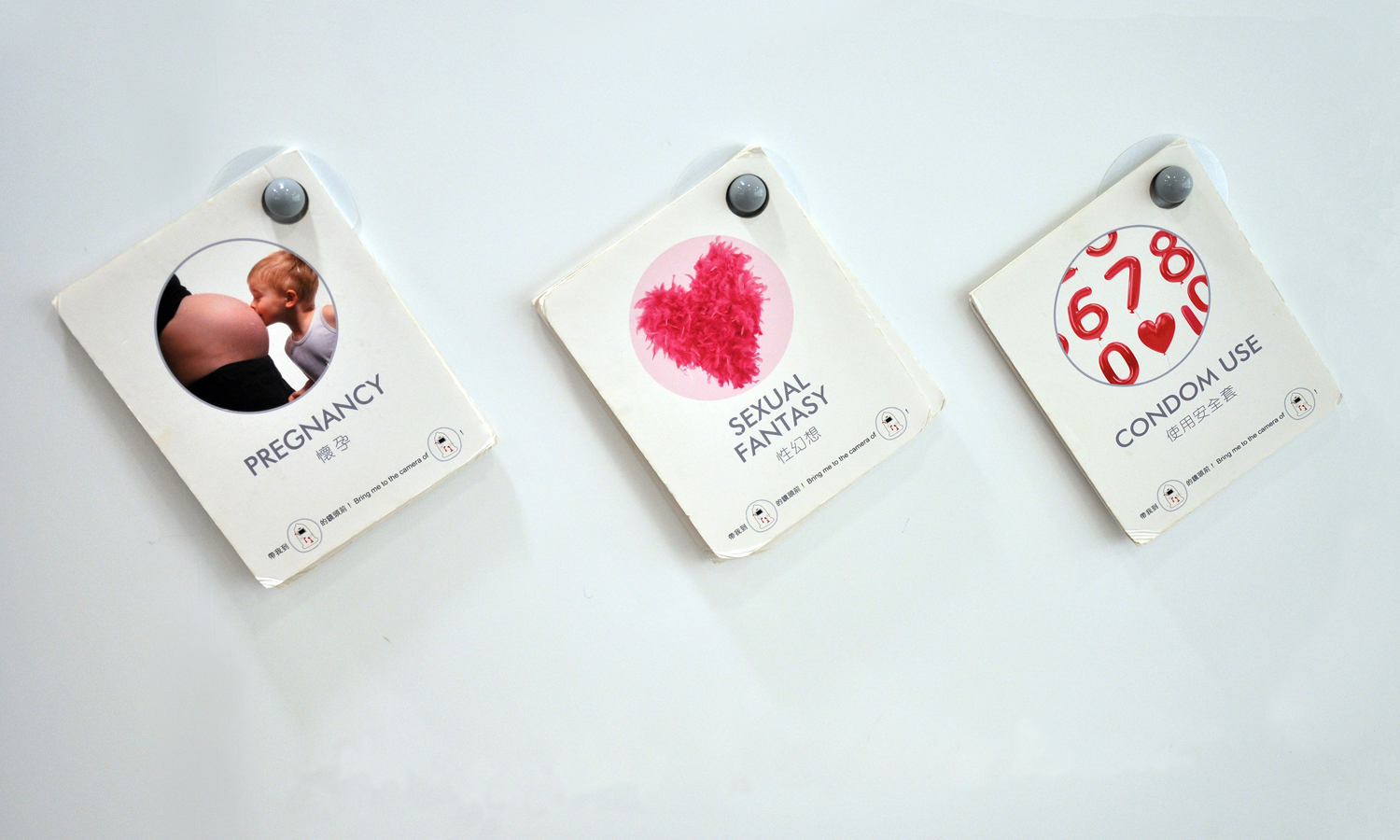Sex education in schools fails to address real needs
By Macau Mak and Sherry Tsui
Bowie, who does not want to disclose her full name, was 17 when she experienced several days of discomfort after having unprotected sex. To her shock, she was diagnosed with chlamydia, a disease that can lead to infertility if left untreated.
Like many of her friends, Bowie thought condoms were just for avoiding unplanned pregnancies. She had never imagined that she may get a sexually transmitted disease (STD). “I had never thought about STDs, like it’s not that easy to get infected. I never bothered with condoms,” she says.
Bowie has now fully recovered after treatment. She also underwent one-on-one counselling and took part in an interactive sex education workshop arranged by AIDS Concern. As a result, she now insists her partner uses a condom before intercourse. But Dr Angela Ng Wing-ying, the vice-chairperson of Hong Kong Association of Sexuality Educators, Researchers & Therapists, says that many teenagers ignore or are unaware of the fact that STDs can lead to complications that could cause permanent damage.
“STDs can result in infertility. Some will experience tremendous pain during intercourse; some experience the pain for the rest of their lives. It is sad to see many of the patients were just in their early teens [when they contracted STDs],” says Ng.
From her own experience, and the attitude of her friends, Bowie thinks the sex education taught in her secondary school failed to deliver the message of preventing STDs to the students. She explains the sex education classes consist of lectures in the school hall, using slides with few pictures or animations. “The hall is so crowded and noisy; no one can hear what the speaker is saying… people are either asleep or playing with their cell phones,” she adds.
Even though Bowie warns her friends that they all face the risk of being infected with an STD, they still think it is difficult to contract such diseases. “They will only be scared when they are also infected with an STD,” Bowie says.
There are no comprehensive figures on the number of youngsters who have contracted STDs, but according to the last available statistics provided by the Social Hygiene Service of the Department of Health, the annual reported number of STD cases for those aged below 15 years increased fourfold from four cases in 2006 to 20 cases in 2009.
Bowie suggests schools should organise more activities with interactive elements, for example use teaching prompts and games to attract students, and create situational scenarios with role playing that they can participate in.

Heidi Yip Cheung-sau, vice-chairperson of the Hong Kong Sex Education Association agrees that today’s teenagers need a more interactive way to learn about sex education. She says the association uses the scenario learning methods recommended by Bowie in its workshops to explore situations such as breaking up with a boyfriend or girlfriend, or how to turn down a request for intimacy.
Yip says learning through scenarios piques students’ interest sufficiently both to reflect on the reasons behind each decision they make while role playing and to relate those decisions to their everyday lives. She says such methods can strengthen students’ ability to think independently and cope with real life problems.
“Our teaching needs to be close to the lives of teenagers, we have to use their language so that they can relate,” says Yip.
Apart from the content and format of sex education lessons, another important element is the teacher. The knowledge and attitude of the person delivering the information has a direct impact on how it is received by students.
Peter (not his real name), who is now 20, discovered the hard way that teachers can be as much a part of the problem as they can be a help. Peter became aware that he was attracted to boys when he was a Primary Six student. He was terribly confused at the time because nobody had mentioned “homosexuality” to him before. It was the internet, not his school or family that provided sources of information that could help him to confirm his sexual orientation.
“I struggled over why I’m so different from the other boys, as they dated girls and were attracted by girls. But I was so different and was only attracted by boys,” Peter explains.
When he was in Form Five of secondary school, Peter confided to a few of his closest friends that he was gay. Unfortunately, some other students overheard him. The school’s environment was hostile towards sexual minorities and soon the information spread. The following term, Peter was verbally abused and bullied. Some students even physically assaulted him. He was so terrified about going back to school he attempted to suicide. “I sometimes pretended to be ill, sometimes hurting myself to get ill,” Peter recalls.
At his Catholic school, Peter was also singled out and stigmatised by some of the teachers. In ethics lessons, his teachers pointed out that homosexuality was “no good” and publicly humiliated him and his friends. One of his teachers objected to him being the master of ceremonies at his graduation ceremony due to his sexual orientation.
Diana Kwok Kan, associate professor of the Department of Special Education and Counselling at the Hong Kong Institute of Education is studying the way sex education is taught in secondary schools. She says some teachers avoid discussing subjects such as sexual orientation although it is a part of the current curriculum framework for sex education, either because of their personal views or the religious background and culture of the school.
The Guidelines on Sex Education in Schools published by the Curriculum Development Council in 1997 recommended that secondary schools should hold activities to promote sex education and integrate it into different subjects, like biology, ethics and religious studies and home economics.
They also stated that meaningful sex education should include three aspects: knowledge, attitude and skills. Knowledge refers to knowledge of the biological, psychological, social and ethical aspects of sexuality, attitude refers to a respectful attitude towards sexuality and religions while skills refers to problem-solving skills to cope with personal and social issues related to sexuality.
Sex education was then included in the Education Bureau’s proposed curriculum framework for Moral and Civic Education (MCE) in 2002. This framework was reviewed in 2008 with specific teaching goals and learning outcomes added for each learning stage.
However, both the guidelines and the framework are just references for schools. The schools are not compelled to treat them like the curriculum guides designed for academic subjects. Secondary schools, therefore, have high degrees of flexibility in choosing their own way to promote sex education. The results of this can be problematic.
In her research, Diana Kwok found a numbers of school deliberately excluding the chapter on sexual orientation, though it is clearly stated and required by the guidelines, because of their religious and cultural background. Kwok finds this to be an abuse of the flexibility granted to schools by the Education Bureau.
Lam Yiu-wah, a guidance master at a Christian secondary school, explains the difficulties of covering sensitive issues like safe sex and homosexuality in a secondary school with a religious background. He says teachers have to take account of the philosophy of the school sponsoring body. Lam says he once received complaints from his colleagues and even students from a Christian fellowship after he invited a homosexual to speak to the students.
While he is mindful of religious and cultural sensitivities, Lam disagrees with the approach of excluding different views and values while discussing sexuality issues. “We would tell students there are many different stances along with discussing their supporting arguments. We hope they can understand these stances,” Lam says. “We wouldn’t brainwash the students.”
Despite the problems arising from the flexibility granted to secondary schools on how to teach sex education, Kwan Pak-keong, the chief curriculum development officer for the subject, defends the policy. He says it is the best way to balance students’ needs, the philosophy of school sponsoring bodies and social expectations. Kwan says there are External School Reviews to evaluate the schools’ performances from time to time and the system is effective.
While some schools may play down or even ignore important aspects of sex education for cultural or religious reasons, others may simply not view sex education as a priority. When preparing for the Diploma of Secondary School Examination (HKDSE) puts so much pressure on students and teaching staff, it becomes impossible for schools to expand and refine their sex education curriculum according to their students’ needs. In some cases, the Education Bureau’s flexibility becomes an excuse for schools to put less emphasis on sex education to the extent that it is not even taught.
For Dr Ng Wing-ying of the Hong Kong Association of Sexuality Educators, Researchers & Therapists, this is symptomatic of a school culture where teachers focus on academic results and maintaining the school’s competiveness to the detriment of nurturing the all-round development of students. That includes developing a respect for others through respecting oneself, and helping a child to build up self-esteem.
“We don’t only teach how to distinguish between geography, physics, chemistry, we also teach them how to be a moral, critical, responsible person, and to know how to love,” Ng says.
Ng says that if children and young people have a sense of self-worth, they would not see themselves as objects and would be less likely to engage in risky sexual behaviour. For Ng, a good sex education is all about appreciating others, and being able to accept and respect others for their differences, including sexual minorities.
Therefore she hopes a reform of sex education will be accompanied by a reform of the whole education system which would allow students, teachers and parents to focus more on life education, rather than solely on academic excellence.
Like Ng, Diana Kwok of the Institute of Education believes sex education should be more wide-ranging. She advocates a comprehensive sex education that would cover the moral, health and human rights aspects of sexuality. Kwok says sex education in Hong Kong is outdated and that teachers should not only discuss topics such as biological sex, sexual behaviour and gender but also sexual desire and sexual pleasure within the context of safe sex and mutual respect.
She says it is difficult to talk about desire and pleasure in secondary schools because of the preconception that even talking about it will encourage students to have sex. Kwok disagrees with this notion and believes suppression of such discussions is harmful.
“We shouldn’t deny the desires of the body because many problems arise when we deny our own desires,” she says.
Edited by Jeffrey Wong











































